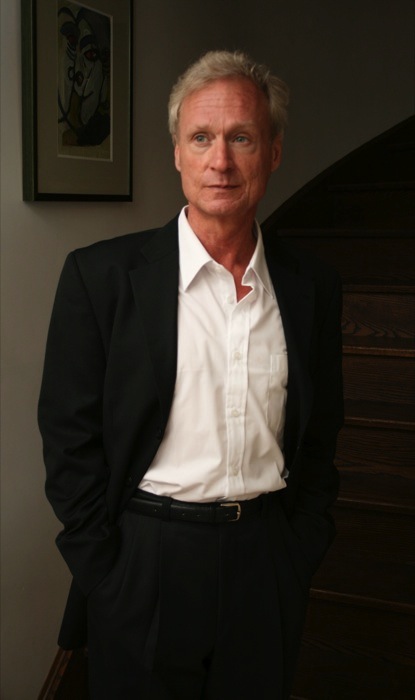Karl Leschinsky and Ernest Reid
Culture and Technology Department
Famed Canadian media thinker Marshall McLuhan’s birthday was this past summer. McLuhanites came from around Toronto and the world to celebrate the media prophet’s 100th birthday with talks, seminars and guided tours.

McLuhan’s legacy isn’t restricted to U of T. York has its own connection to McLuhan through B.W. Powe, a writer, philosopher, and members of York’s English department. Powe was one of McLuhan’s students. Most media experts had dismissed the aging English’s professor work, but Powe, with five other students, was not deterred.
“McLuhan can be understood as a rare sacrificial figure burned alive,” Powe says. He gave what the audiences wanted and played the part for television. McLuhan’s persona was provocative, intense, and all-at-once. “He lived the mass age,” Powe says. McLuhan’s rejection is key to his legend and a “part of his prophetic legacy.”
Thirty years later at York, Powe teaches the media prophet’s legacy to first and fourth year students, teaching an Honours seminar on Marshall McLuhan and Northrop Frye. Powe is a Promenthean figure, carrying the McLuhan light from U of T to York, while also moving beyond it.
“We are in the midst of a McLuhan revival,” Powe tells his seminar students. He should know. His expertise is highly sought after. His interviews have appeared in The New York Times and The Toronto Star. This past year, he balanced teaching with a European speaking tour. Powe is one of the centres of McLuhan’s restoration.
Powe challenges his students to extend beyond the ink on paper. He brings McLuhan to the moment, hoping students see how technology shapes our perception of the world. Technology alters our senses and we are unaware of its presence. McLuhan’s genius was to expose the invisible environment, moving past the figure into the ground.
Like McLuhan, Powe aims to see the frame from the picture. Powe was one of the few outsiders to see McLuhan’s ground, the man behind the prophetical figure. The U of T professor was a conservative family man. Privately, he despised the end of reading. McLuhan also held particularly brutal opinions of pop culture, calling Star Wars “the background noise […] on the first level of [Dante’s] Inferno”.
Like his teacher, B.W. is also a man of books. He is reluctant to use email and prefers inviting students to meet face to face. Every year, however, Powe exposes himself to new technologies of new generations. The man of letters is never fully plugged-in.
By teaching first-year English, Powe is witness to the collapse of the literate age. He hopes we understand McLuhan’s foresight. As more freshmen prefer the speed of the image to the patience of text, reading will become an outmoded ritual.
Powe challenges his students to consider how printed texts are obsolesced by an electric cosmos. He agrees with his teacher, that the electric world is an extension of the human nervous system. Toronto is a witness to the new “global theatre”, where our lives echo and vibrate through the electric ecology, where Powe says we turn into “voyeurs and exhibitionists.”
Consider Facebook. If it were a nation, it would be the third most populous on Earth. Every day 750 million users broadcast their lives, becoming both audience and actor. Facebook is only free because we are the product, or as McLuhan might say, “user is content”.
Powe teaches his students to create their own anti-environments. The student’s ability to disrupt and explore figure-ground relations is a foundation of his pedagogy. He makes his seminar students watch people watching television. Homework includes observing television light play in a dark room. Slowly through practice, the student learns how to move within their invisible environments.
As an educator and a writer, Powe struggles to move within his own environs. “I have yet to find a form that […] is entirely free, true to my way of feeling,” he admits. Not everyone appreciates his techniques either.
“I have trouble keeping to a line of story or of argument,” he says. “Some students rebel against my zigzag teaching methods. But many like it, because they know it’s about being true to the focus on the moment.”
Powe will be on sabbatical this academic year. He will not return to the classroom until January 2013. He is writing several books, including a reworking of his York dissertation on Marshall McLuhan and Northrop Frye.
B.W. Powe’s work is available at the York University Book Store. His most recent book is These Shadows Remain: A Fable.
With files from Bruce Sterling (@bruces)
York’s medium for McLuhan’s message


